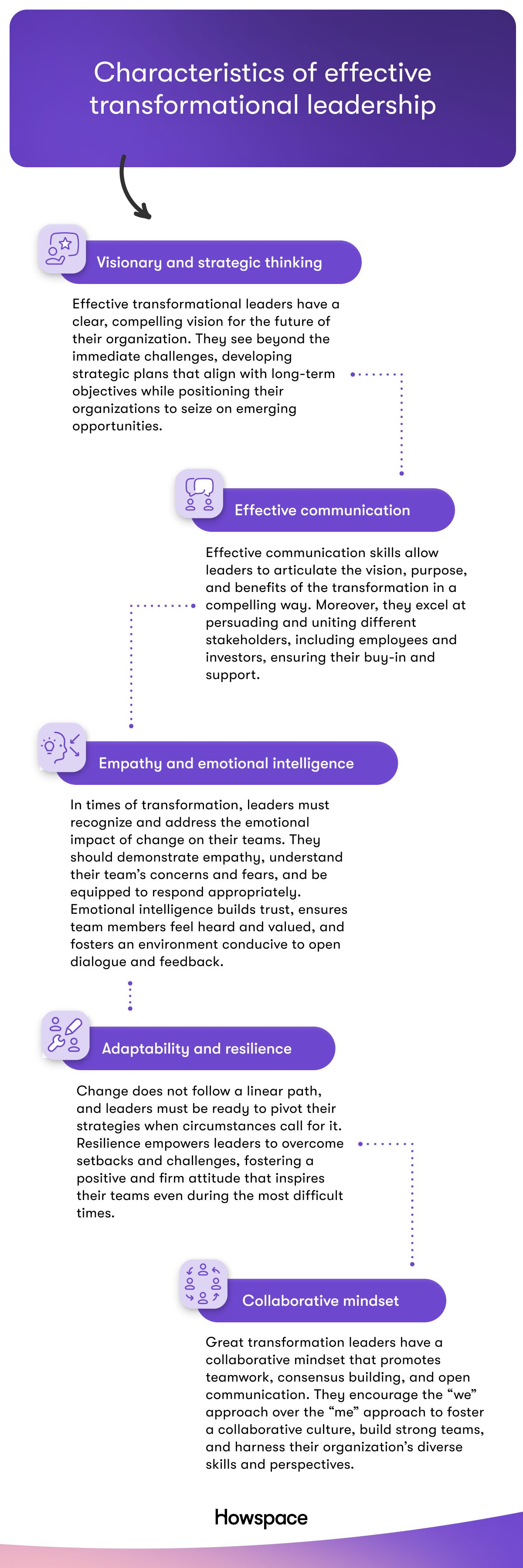
The importance of leadership in guiding organizational transformation
The role of organizational transformation has gained significant importance during the past few years. The term refers to the fundamental reimagining and redefining of an organization’s structure, culture, and operations, allowing it to adapt to changes or capitalize on new opportunities. In other words, the goal of organizational transformation is to move your organization from where it currently is to a desired future state. To succeed in transformations, organizations need to rethink and redesign their approaches with a focus on human needs and experiences. Leadership plays a crucial role in driving this shift. Leaders must act as catalysts for change, guiding and overseeing it while inspiring others to embrace and champion the new vision.
This blog post will delve into the important role of leadership in guiding organizational transformation. We will explore the role of leadership in driving change, characteristics of effective leadership, and strategies for developing leadership capabilities as well as overcoming resistance to change. Let’s dive in!
The role of leadership in driving and managing organizational change
Successful organizational transformation lies in capable leadership. Leaders can and should serve as the core of change, initiating and guiding the journey while mitigating risks and potential resistance. Their role goes beyond just decision-making; they are visionaries who paint a compelling picture of what the future holds, thereby uniting the entire organization around a shared purpose.
Communicating the vision and purpose of the transformation to inspire others
One of the most critical aspects of leading transformation is articulating the vision and purpose of it. Leaders are storytellers who communicate the “why” behind the change through their words and actions. This helps to inspire and motivate others, creating an organization-wide understanding of the transformation’s necessity and potential benefits. From C-suite executives to frontline employees, everyone should be able to answer the question, “Why are we doing this?”.
Setting clear expectations and creating a sense of urgency
Leaders must also set clear expectations and instil a sense of urgency. Transformation is rarely a leisurely process–but is instead driven by the pressing need to adapt to fast-changing market conditions or to respond to industry disruptions. Leaders must ensure that everyone understands the urgency of the situation and the critical role they play in the change process. It’s also important for leaders to establish transparent, measurable goals that serve as a roadmap, guiding the organization through every step of the transformation journey.
Empowering and motivating people to embrace change and take ownership
Successful transformations don’t rest solely on the shoulders of the leadership. Instead, it’s a collective effort that requires individuals at all levels of the organization to feel empowered and motivated to embrace change. It requires active involvement of individuals throughout the organization, with each person having a specific role to play and a clear understanding of how to execute their part effectively. Leaders are tasked with creating an environment that encourages ideation and ownership, allowing their teams to step up, innovate, and contribute to the transformation process. This involves fostering trust, offering support and resources, and creating open communication channels for feedback and collaboration.
Characteristics of effective transformational leadership
When exploring leaders at the heart of successful organizational transformations, certain qualities and traits consistently emerge. These characteristics go beyond the typical expectations of leaders and encompass attributes that enable them to unite entire organizations around a shared vision.

Developing leadership capabilities during transformation
Leadership capabilities are not a fixed set of skills that one either possesses or lacks. These skills can be nurtured, refined and improved, especially in the context of organizational transformation. Companies striving to develop these capabilities within their leadership team can employ several strategies.
Investing in leadership development programs and training is a foundational step. These programs can be tailored to equip leaders with the skills necessary for guiding transformation, such as strategic thinking, emotional intelligence, and change management. Mentoring and coaching are also invaluable for aspiring leaders. These relationships provide a supportive platform for leaders to gain insights from more experienced individuals who have navigated similar transformative processes.
Transformational leadership isn’t a one-off endeavour–it requires an ongoing commitment to learning and personal development. Leaders should be encouraged to regularly reflect on their actions, decisions, and interactions, using these insights to refine their leadership style and approach. Therefore, organizations should promote a culture of continuous learning.
Overcoming resistance to change and fostering a positive transformation culture
One of the most significant challenges leaders face during organizational transformation is resistance to change. Various reasons can cause it; fear of the unknown, discomfort with new ways of working, or a lack of understanding of the purpose and benefits of the transformation. Leaders must proactively address these sources of resistance, facilitating a smoother transition.
Engaging all stakeholders is crucial for overcoming resistance. By involving individuals in the transformation journey–whether through consultations, collaborative decision-making, or task forces–leaders can foster a sense of ownership and commitment among them. Effective communication is key here; regular updates about the progress of the transformation, the rationale behind decisions, and the benefits of the change can help debunk misconceptions and reduce anxiety.
Building trust and transparency is another vital approach. Leaders must be open about the transformation’s challenges and potential setbacks while highlighting the opportunities it brings. Leaders don’t have to have all the answers all the time, but honesty fosters trust and increases buy-in, ensuring individuals remain committed even when things get tough.
Recognizing and celebrating small wins is an effective way to boost morale and motivation. Organizational transformation is a marathon, not a sprint, and it can be easy to lose sight of progress. By acknowledging milestones, leaders remind everyone of the positive strides they’ve made, reinforcing their commitment to the transformation.
Finally, fostering a culture that embraces change, innovation, and continuous improvement is vital. This entails encouraging risk-taking, rewarding innovative ideas, and viewing failures as opportunities for learning. Such a culture not only facilitates the current transformation but also equips the organization to adapt and thrive in the face of future change.
Leadership: The cornerstone of successful organizational transformation
The journey of organizational transformation is intrinsically intertwined with effective leadership. However, leading transformation is not only about creating a vision and telling everyone to execute it. It is about bringing that vision to life, setting clear expectations, and making sure all employees have a role in the transformation. It is also about constantly developing one’s leadership qualities and capabilities. Most importantly, leading transformation is about empowering people; the most successful transformations enable employees from every corner of the organization to put forward ideas that can improve the focus, process, and execution of initiatives.
Howspace’s Transformation Leadership Platform enables leaders to lead organization-wise transformation with inclusivity and transparency. Howspace helps organizations to connect people with change, empowering leaders to involve every individual in the transformation journey and fostering two-way communication, collaboration, and a connection to the company’s purpose.
At best organizational transformation is a strong force that shapes your business for the better. Howspace can support you in unlocking the full potential of your organization by putting people at the heart of transformation.
If you want to learn more about our human-centric approach to transformation and hear from speakers from KONE, Wärtsilä Energy, SAP, Sofigate, Gaia Consulting, and other industry experts and thought leaders, catch the recording of our Transformative Impact 2023 event.
You might be interested in these as well
View all
Emotional Leadership in Change and Transformations at Different Organizational Levels
Discover the power of emotional leadership in navigating change at different organizational levels.

Gofore joins forces with Howspace as a new strategic partner
Gofore joins forces with Howspace as a new strategic partner to drive human-centric digital transformation.

Make Your Decision-Making More Inclusive and Effective
Participatory decision-making taps into the collective wisdom of your entire workforce. Here’s how to make more impactful decisions in your organization.